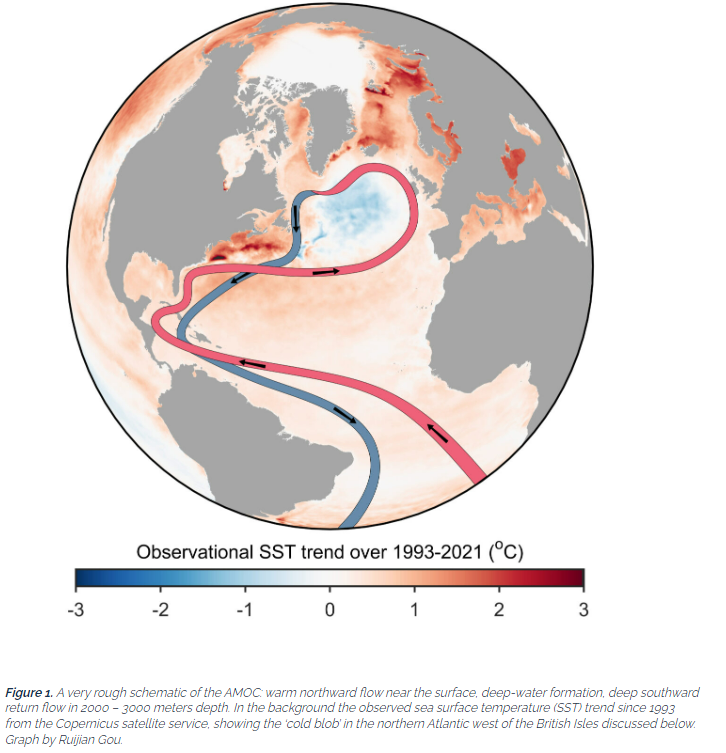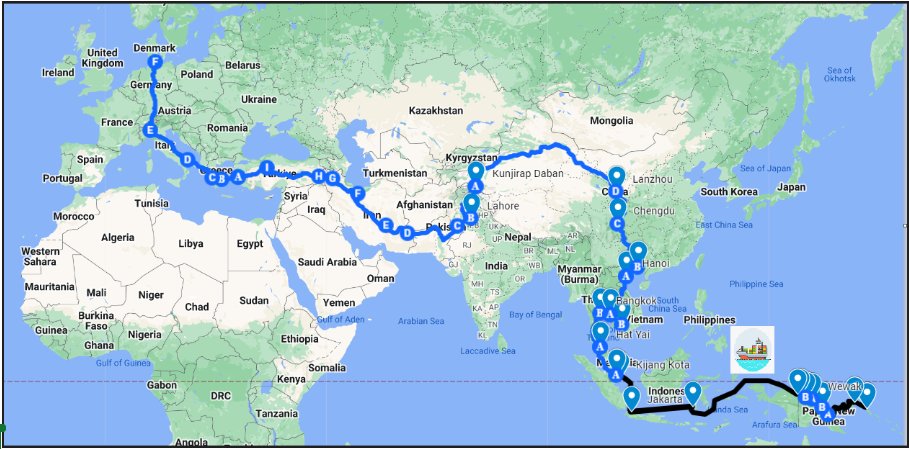Ready to embark on reduced-carbon trip from Germany to Papua New Guinea for research.I'll travel 2/3 of the 22,500km distance by rail,coach,& ferry over~224hours,reducing CO2 emissions by 2,4tons of CO2. Return is planned #NoFly. #slowtravel #ClimateCrisis. 1/🧵 

I plan to travel #NoFly in the return trip, catching ferries or cargo ships between PNG and Indonesia (where ferry operator @pelni162_ID travels regularly). Please let me know of any tips you may have. @EcoClipper 2/ 

Travelling no-fly from Papua New Guinea to Germany will bring emissions down to ~0,42tonnes of CO2 for an estimated 512 hours of travel. That's 9% of the emissions that an airplane produces. 3/ 

In the outbound journey I am going to emit an astronomical 2,3tons of CO2. This is because I'll have to take a plane on two routes. 4/ 



Many countries (Azerbaijan, Myanmar) don't allow entry by land, some are close to tourists (China, Turkmenistan), others are at war. This makes overland journeys very difficult. I've received contradicting info on whether the entry btw Pakistan and India is open. #Wagah 5/ 

Big caveat: All of these estimates are based on average emissions and are thus subject to a large margin of error. Carbon calculators produce very large estimates differences. It is however clear that flying is way more polluting than travelling through other means. 6/
I am well aware that in the age of human-induced climate crisis every use of energy should be made for truly necessary reasons. Since part of the fieldwork investigates adaptation to sea level rise by residents of small islands, I tend to think thatit makes sense to travel. 7/ 

Even so, I have doubts if what I am doing is right. The least I can do is being accountable and trying to induce awareness on the climate crisis. In this file I have analysed the impact of my travel and provided resources on emissions accoounting. docs.google.com/spreadsheets/d… 9/
I do hope that my trip will inspire others to slowtravel or reduce/cancel their travels altogether. I know that my action is worth less than a drop in the ocean,but as @steviedubyu finds in his research,individual action has far-reaching consequences. theconversation.com/climate-change… 10/
As a privileged European scientist with possibility to manage my time flexibly, I also feel the moral duty to do all of what I can to reduce carbon emissions. Others such as @ClimateHuman & @KevinClimate have given up flying altogether. Others such as @Steinberg11/
It is well-known that climate scientists are more credible if they walk their talk.archive.news.indiana.edu/releases/iu/20…. 12/ 

This action continues my involvement with @ScientistRebel1, in just another way. 13/
https://twitter.com/GGrimalda/status/1591121849777557505
I also know that the places I am going to visit are paradise on Earth. I feel incredibly lucky to have this opportunity and I feel sad by the growing climate instability of these places. 14/ 







As brought out in previous research of my group, whcih inquired about experience of extreme weather events. 15/ 

At the personal level, I must say I felt much happier and excited in my last slowtravel trip in 2019. I had much higher hopes at the time that the climate crisis would be handled. After 4 years of badly insufficient climate action,I feel all the seriousness of the situation. 18/ 







@threadreaderapp unroll
• • •
Missing some Tweet in this thread? You can try to
force a refresh
















